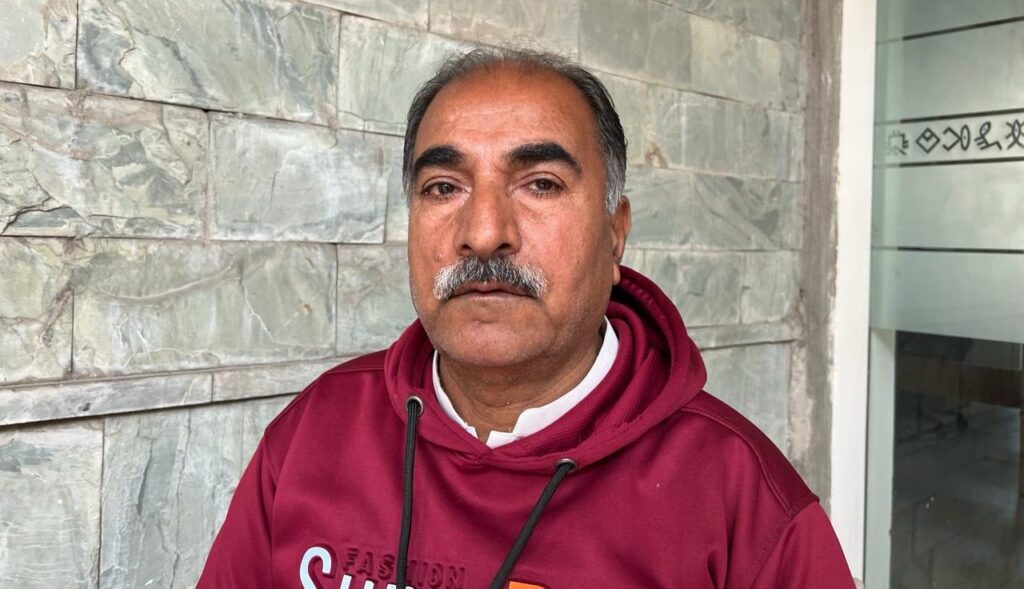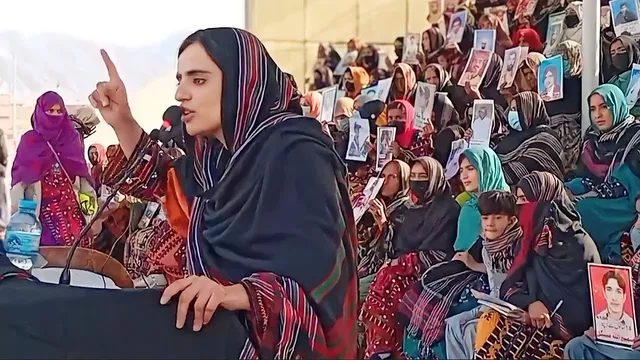Entrevista con Nazar Mengal, presidente central de la Campaña de Defensa Sindical de Pakistán (PTUDC) y dirigente de The Struggle, sección de la LIS en Pakistán, en Baluchistán.
Cuéntanos sobre el movimiento nacional baluchi
En 1947, cuando los imperialistas británicos crearon Pakistán, Baluchistán era un Estado independiente. Pero al año siguiente, el nuevo Estado paquistaní orquestó su primera operación militar en Baluchistán. Y, aunque inicialmente lo habían declarado un Estado independiente, luego lo anexaron a la Federación por la fuerza mediante la opresión. Cuando comenzaron las operaciones militares en Baluchistán, Abdul Karim Khan lanzó el movimiento de resistencia contra la ocupación. El segundo levantamiento militar y movimiento de resistencia tuvo lugar bajo Noroz Khan en la década de 1960. Más adelante, en la década de 1970, hubo otra rebelión cuando Bhutto desmanteló el gobierno del Partido Nacional Awami en Baluchistán por la fuerza. Posteriormente, en 2008, tras el asesinato de Nawab Akbar Khan Bugti por parte de los militares, hubo otra rebelión y lucha armada que ha continuado durante los últimos 16 años.

¿Cuáles son los motivos del movimiento?
La razón principal de todos estos movimientos de resistencia y rebelión es que Baluchistán es una región rica en minerales y recursos y de importancia estratégica. Y durante los últimos 75 años, el pueblo de Baluchistán ha sido privado de derechos básicos y de cualquier control sobre esos recursos. Por ejemplo, el gas que se descubrió en Sui, un distrito de Baluchistán, en los años 50, pero el pueblo de Sui todavía no tiene acceso a ese gas, a su propio gas. De manera similar, está la región de Sindak, rica en cobre y oro, que recientemente fue entregada a China. Y todos los ingresos que provienen de estos recursos no van al pueblo de Baluchistán.
Más del 80% de la población de Baluchistán es pobre, aunque es un país muy rico. No hay infraestructura en Baluchistán. No hay industria en Baluchistán. No hay empleo en Baluchistán. Hay un desempleo masivo en este momento, aunque el gobierno paquistaní ha afirmado que con el CPEC (Corredor Económico China Pakistán) habría muchas más oportunidades para los jóvenes baluchis. El puerto de Gwadar fue entregado a China y hubo afirmaciones de que muchos estudiantes serían llevados a China con becas universitarias. Pero todo fue un engaño. La realidad es que todavía hay un desempleo rampante en Baluchistán.
Entonces, aunque hay cierto desarrollo de infraestructura en otras partes del país, por ejemplo, en Punjab, la carretera principal que conecta Baluchistán con Karachi sigue siendo una carretera vieja y deteriorada que produce de 5 a 10 accidentes por día, matando a miles de personas cada año. Aunque han declarado a dos de los distritos de Baluchistán como zonas industriales (uno es Boistan y el otro es Hub), incluso después de que todos esos dólares llegaron de China en nombre del desarrollo, esas zonas industriales todavía no se establecieron.
De manera similar, la infraestructura educativa también es muy pobre. Sólo hay una universidad en Baluchistán, la Universidad de Baluchistán, pero carece de fondos suficientes. Los profesores y los empleados frecuentemente hacen huelgas para reclamar sus salarios. La infraestructura sanitaria también se está deteriorando y es prácticamente inexistente, a tal punto de que ni siquiera se puede realizar una operación menor, como la extirpación del apéndice, en Baluchistán. Tienes que viajar hasta Karachi para hacerla. Hay un gran problema con el agua potable, que no hay en Baluchistán, y hay un problema de electricidad. Los distritos periféricos de Baluchistán sólo reciben tres horas de electricidad al día.
La agricultura ha sido completamente destruida. No hay subsidios gubernamentales para ello, que es una de las razones por las que hay tanto desempleo aquí. La única fuente de ingresos del pueblo de Baluchistán es el contrabando a través de las fronteras con Afganistán e Irán. E incluso allí, la mayor parte de los ingresos van a parar a los militares que controlan esas fronteras.
¿Qué provocó el actual ascenso del movimiento?
Siempre que se levanta la voz contra la opresión estatal o se intenta protestar contra esta opresión, el Estado aumenta la intensidad de esa opresión. La guerra entre el ejército y los guerrilleros crea un entorno en el que el Estado paquistaní secuestra por la fuerza a jóvenes activistas que desarrollan el movimiento político, los tortura y deja sus cuerpos mutilados para que sean encontrados después.
Recientemente, un joven llamado Balach Baloch fue secuestrado ilegalmente y asesinado en un enfrentamiento falso que el Estado declaró había ocurrido. Cuando se encontró su cuerpo mutilado, estalló el movimiento actual. El Comité Baluchi Yakjehti (Comité de Solidaridad Baluchi), dirigido por Mahrung Baloch, inició una sentada en Gwadar, y luego comenzó una larga marcha desde Gwadar a Quetta y luego de Quetta a Islamabad. En esta larga marcha estuvo presente la familia de Balach Baloch, junto con otras familias de personas forzosamente desaparecidas. Su exigencia es que si alguien ha cometido algún delito, o el Estado cree que alguien ha cometido un delito, entonces debería presentarse ante un tribunal de justicia, pero estas ejecuciones extrajudiciales deben cesar ya.
Un elemento del movimiento, que no tiene precedentes, es histórico, es que una mujer encabeza la protesta. Y hay una participación masiva de mujeres en este movimiento. Esto no sólo está teniendo un impacto positivo en Baluchistán, sino también en toda la región. Estamos viendo a muchas mujeres radicalizarse políticamente y participar. Muchos le están poniendo a sus hijas el nombre de Mahrung. Después de 30 días de sentada, regresaron a Quetta y realizaron allí una gran protesta con miles de personas.

¿Cómo está interviniendo The Struggle?
Nuestra organización estuvo presente e intervino con nuestra posición de clase. Estamos siguiendo la situación de cerca y trabajando para desarrollar el movimiento. Nuestra tarea, y lo que estamos proponiendo al Comité Baluchi Yakjehti y a este movimiento, es conectarlo con otros movimientos en otras partes del mundo, especialmente en Pakistán, como el PTM o en Cachemira, y el movimiento de clase en general.
La numerosa delegación de camaradas de Baluchistán que participaron en el Congreso de The Struggle, incluyendo muchos nuevos activistas jóvenes, nos da fuerza para avanzar en impulsar el movimiento y construir una alternativa de clase revolucionaria en Baluchistán.





